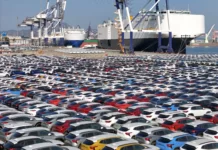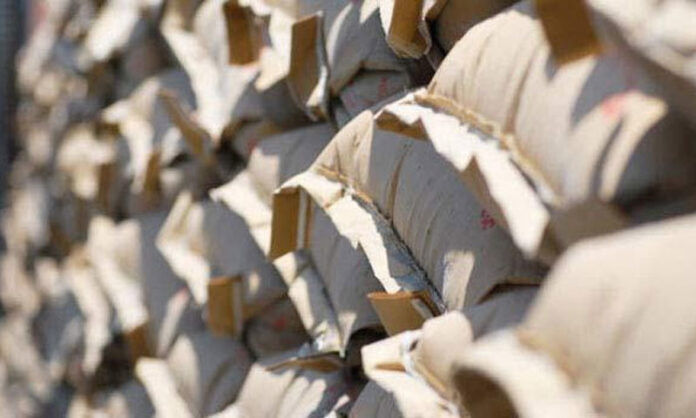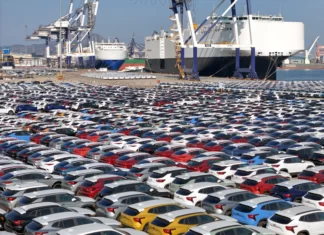ISLAMABAD: While tapping the market of United State of America (USA) for the first time a Pakistani firm has received import of cement worth $360 million. DG Khan Cement Company (DGKCC) has an order to export 600,000 tons of low alkali cement to the USA per year which will fetch approximately $ 360 million for the country.
“Our second consignment of 37,500 tons loaded on vessel ABU AL ABYAD has left for Houston, Texas, USA this morning,” Executive Director DGKCC Farid Fazal said on Wednesday
According to him the first consignment of 50,000 tons was dispatched in June last year making Pakistan one of the 25 countries exporting cement to the US.
“This is for the first time in the history of Pakistan that cement is being exported to the USA market,” said Farid.
He added that the third consignment will leave for the US next month and considering the good quality of Pakistani cement the country can achieve 10 to 15% share in the US market.
Besides, he added, the company is in talks with buyers from London, France, and Germany and soon the company will be entering the European market after getting CE certification.
“We have lots of surplus cement and as the supply is much greater than the demand, manufacturers are not utilizing their full capacity, hence we need to explore new markets,” said Farid.
He added that the country needs to expand its exports to big markets like the USA as the demand for construction materials in the USA has increased manifold with buyers looking for new sources of supply following President Biden’s $6 trillion infrastructure package.
Under this package all mega infrastructure projects including freeways, bridges and roads will be rebuilt or given facelifts as some of these were constructed almost a century ago.
“It took us 12 months to get the technical certifications for supply of cement to the markets in the USA from TXDOT, NCDOT, SCDOT and LODOT,” said Farid.
He added that the USA is a huge market and due to strict environmental laws it is very difficult to put up cement factories and their requirements of cement are met by imports from Mexico, Canada, Vietnam and Turkey.
“After the good response our cement received in Houston, I was invited to make a presentation at the International Cement Conference INTERCEM’ in Houston which generated a great number of inquiries and prospective customers,” said Farid.
He added that the local cement industry has the capacity of 65 million tons and domestic consumption is just 40 million tons while exports are just 4 to 5 million tons.
Ziauddin, Dy. General Manager, on the occasion informed the media that DGKCC is the first to use innovative technologies in the cement industry.
“DGKCC latest state of the art plant located at Hub is first of its kind to have largest production line with six stage preheater, tower, largest vertical grinding mill based on COPE drive system, multiple chamber cement storage silos to store different products at the same time,” said Ziauddin, adding that it is from this plant that they are exporting the second shipload of low alkali cement to the USA.
He added that their focus is on maintaining an Eco – friendly environment by making a significant contribution to reduce carbon footprints by using renewable energy, waste heat recovery and alternate fuels.
It is pertinent to mention here that DGKCC is among the largest manufacturers of Pakistan with a production capacity of 25,000 tons cement per day (7.500 million tons/annum).
DGKCC has three cement plants located at Dera Ghazi Khan, Kalar Kahar and Hub. Plants and equipment are supplied by renowned European suppliers and are based on the latest Dry Process what’s Technology.
























